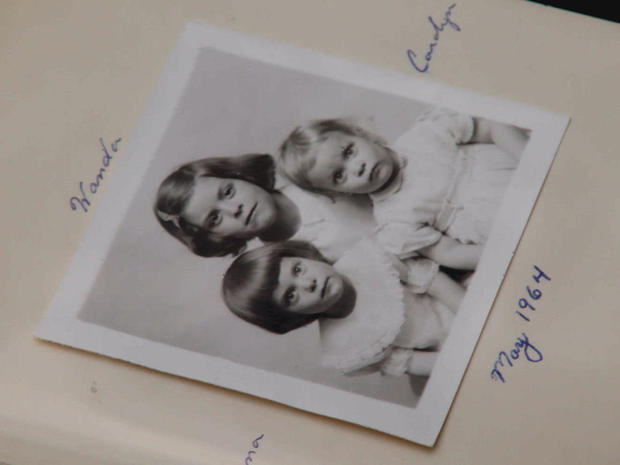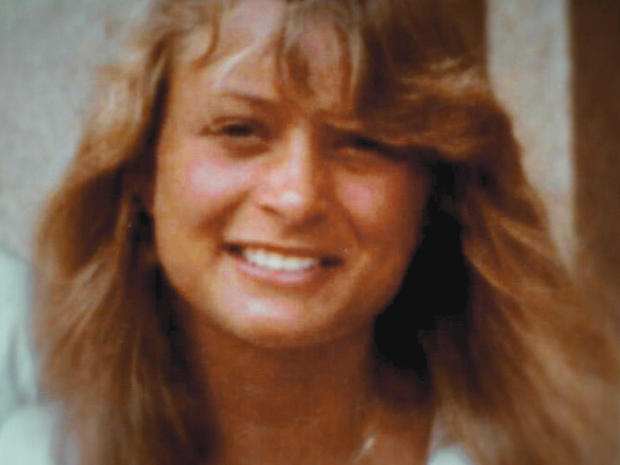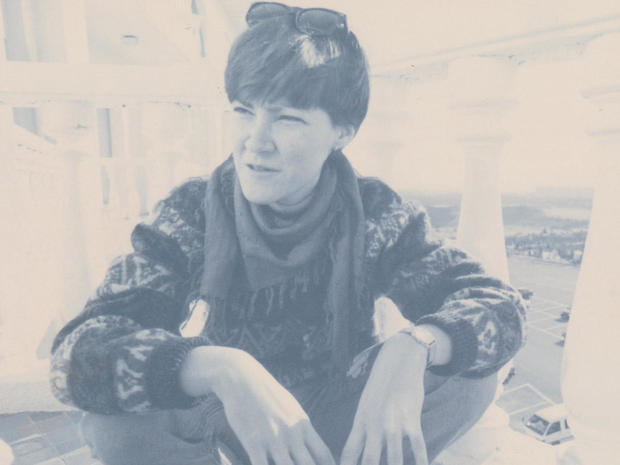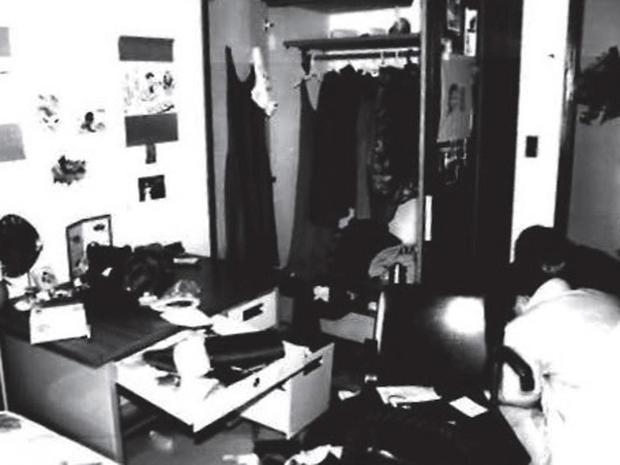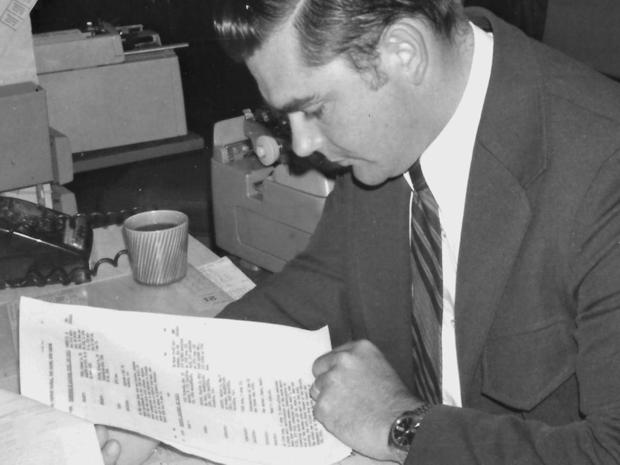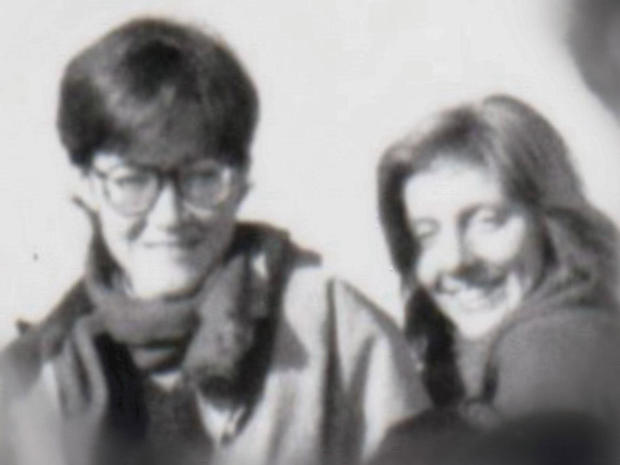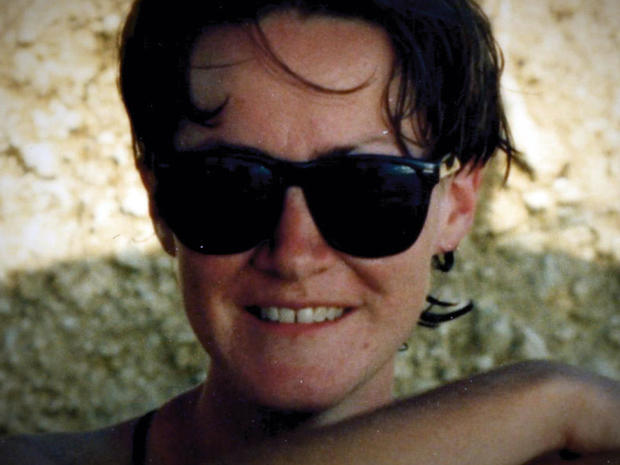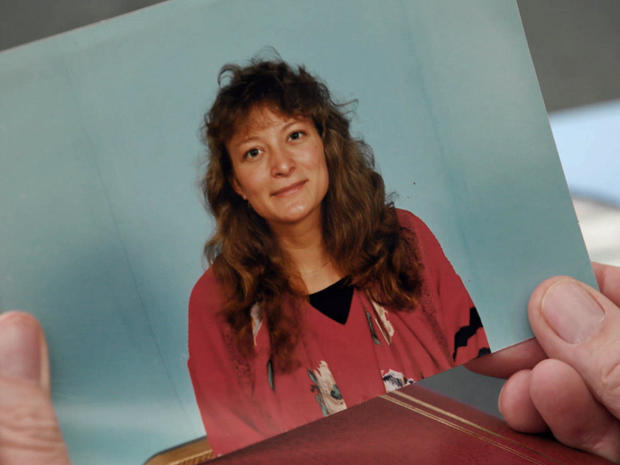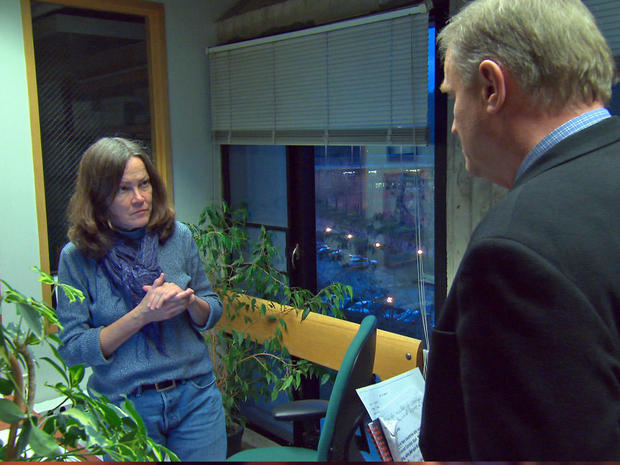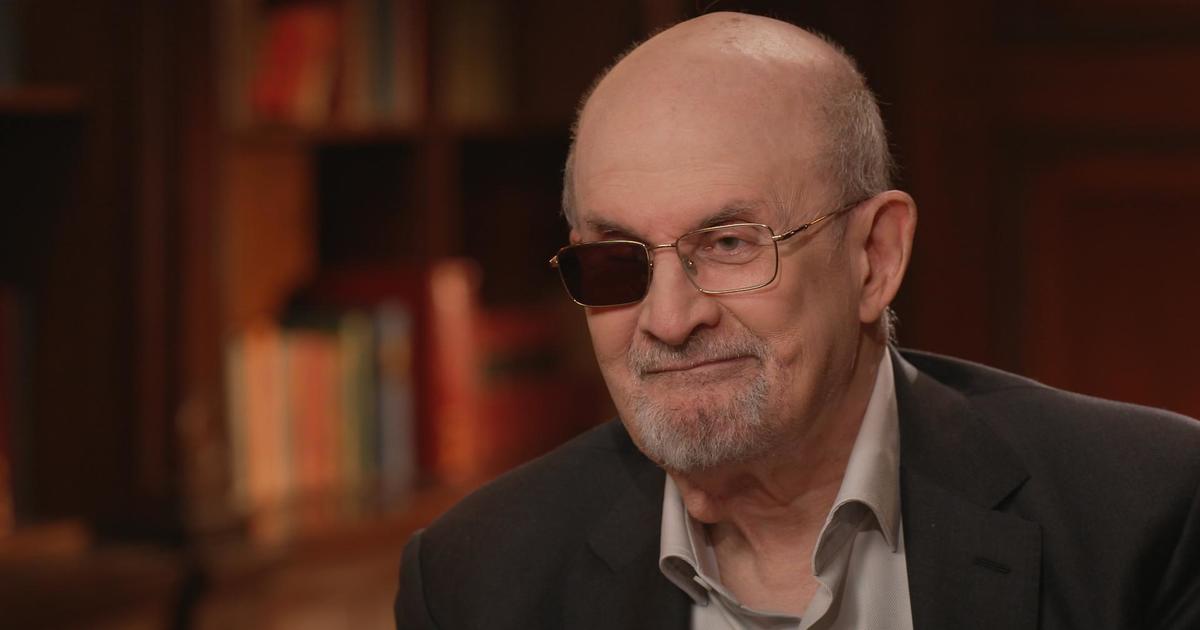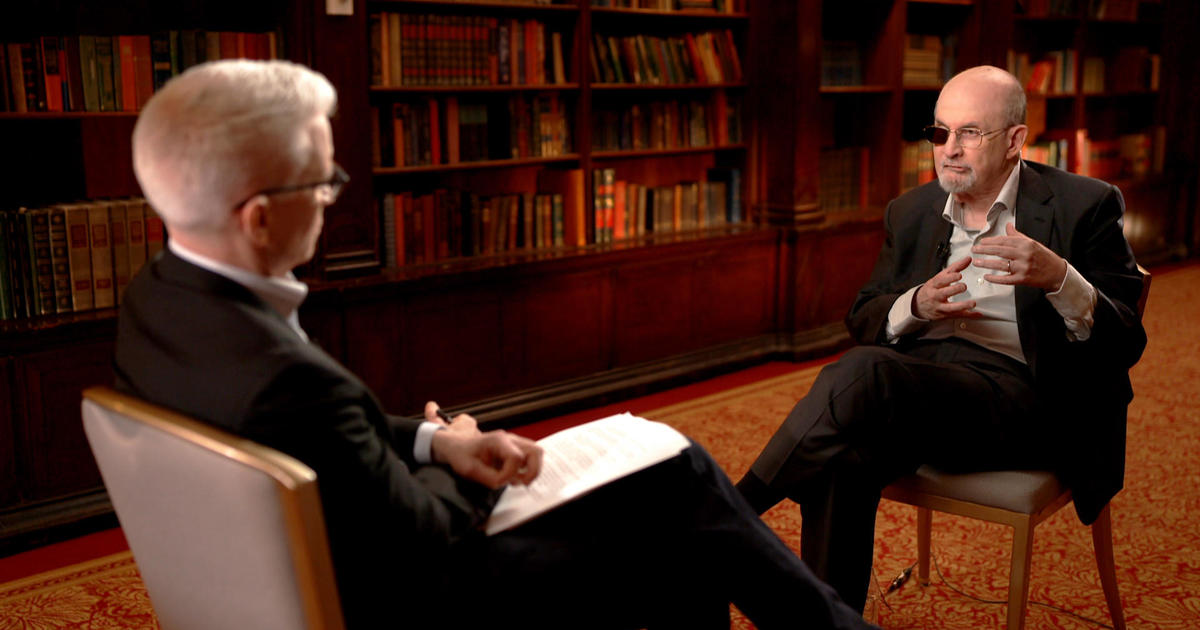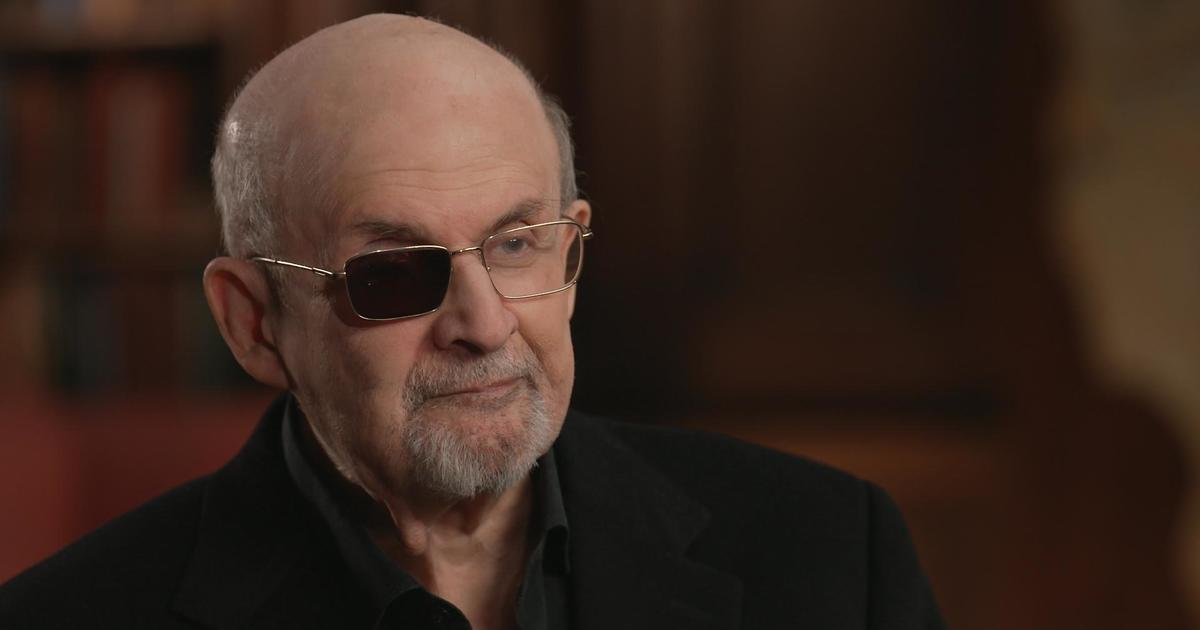Is justice out of reach for an American teacher murdered in South Korea?
Produced by Chris O'Connell and Lauren Clark
[This story previously aired on March 9. It was updated on August 10.]
Imagine a loved one brutally murdered in a foreign country -- allegedly by another American.
Correspondent Peter Van Sant and his team have investigated the disturbing 1988 murder of Carolyn Abel, an American teacher in South Korea, and the loophole in U.S. laws at the time that mean the suspected killer may never face trial.
A MYSTERY BEGINS
For writer and author Nancy Bercaw, flying to South Korea in the winter of 2018 reopened a painful chapter in her life: one of murder, loss and fear.
Nancy Bercaw: Not only were we devastated about the loss of Carolyn … We of course wondered, "Who's next?"
Peter Van Sant: Back in Seoul. Where should be our first stop?
Nancy Bercaw: Well, I think we should go to the school, to ELS, where we all taught.
ELS is the English Language School, where Bercaw met fellow teacher Carolyn Abel back in 1988.
Nancy Bercaw: This is the school. ... And the world was never the same for any of us who were in that building together on December 20th.
The events of that day have haunted Carolyn Abel's family for more than 30 years.
Wanda Abel: And the damage that's been done … was just so devastating.
Wanda Abel remembers her younger sister Carolyn as the center or attention from an early age.
Wanda Abel: She was the youngest and the cutest and … the baby of the family.
The youngest daughter of professors Dr. Francis and Evelyn Abel, Carolyn had a love of photography and a wanderlust that took her around the world.
Wanda Abel: My mother said in retrospect it was almost like she knew she didn't have a lot of time ... she wanted to do as much as she could in the time she had, and not waste a second.
By the time she graduated from college, Carolyn had already lived in Pakistan, East Asia, Germany and France.
Wanda Abel: She would get restless. She didn't like being just in one place for too long.
That restlessness compelled Carolyn to join the Peace Corps after college, serving in Nepal where she taught English. In 1987, Carolyn took another teaching job in Japan, where she met Tomoyuki Ayagaki, a customs agent.
Tomoyuki Ayagaki [translated]: She's always -- cheerful.
Peter Van Sant: Did she make you laugh?
Tomoyuki Ayagaki: Yes, she's funny.
Carolyn and Ayagaki began a relationship that very quickly became serious.
Peter Van Sant: Did you fall in love with Carolyn?
Tomoyuki Ayagaki: Oh, yes.
Wanda Abel: Tomoyuki did propose to Carolyn.
Peter Van Sant: And what was her answer? Do you know?
Wanda Abel: Carolyn … was trying to decide whether she would be happy being married and staying in Japan.
While contemplating a future life with Ayagaki, Carolyn received an offer for another job 330 miles away and across the Sea of Japan.
In the fall of 1988, Carolyn set out on her next adventure in life, teaching English in Seoul, South Korea.
Nancy Bercaw: And from the minute she walked into the staff room, she was just a breath of fresh air. …She sort of looked a little bit like Farrah Fawcett.
That's where Carolyn quickly fell in with Nancy Bercaw and the other American teachers at school. Like Sandra Ames, who requested that we alter her current appearance for this interview.
Sandra Ames: She was making her students laugh, and sing, and -- and have fun learning English.
And Tamara Doak.
Tamara Doak: She made friends with everybody. She was very, very friendly.
Carolyn also hit it off with the head teacher at the school, Kathy Patrick.
Sandra Ames: Carolyn and Kathy Patrick were extremely good friends. …They were considered, if I can use a modern term, besties.
The women taught, traveled and partied together.
Nancy Bercaw: Ex-pat life in Seoul in the late '80s was wild and … one place where our worlds collided and that was Itaewon, the red-light district. … So, what we did is we danced and drank like crazy people.
On the weekend of Dec. 17, 1988, just three days before the murder, Ames, Patrick, Carolyn and some Korean students took a trip into the mountains. Carolyn took pictures.
Sandra Ames: We spent the time looking at temples, and hiking and then partying in the evenings.
Classes were winding down for the winter break. Ayagaki was getting ready to fly to Seoul, hoping to get an answer to his marriage proposal. On Tuesday, Dec. 20, Carolyn never made it to work.
Nancy Bercaw: And a lot of us … missed work on occasion for various reasons.
Sandra Ames: I was not at that point concerned. But … Kathy was concerned about Carolyn because she couldn't get her on the phone.
Nancy Bercaw: Kathy was asking all of us -- had any of us heard from Carolyn. … No.
Sandra Ames: Kathy was very upset, convinced that something had happened to Carolyn.
Tamara Doak: And -- I said, "Well … maybe we should go over there."
Sandra Aes: At that point, some of our students drove us to Carolyn's apartment. We went into the apartment, and Kathy … discovered the body … She was murdered brutally and horribly and in a way she did not deserve.
Tamara Doak: And we were just all in shock. … just trying to figure out … what happened.
Nancy Bercaw: I think we all just felt like, "What the hell's gonna happen now? Are we in danger? How will Sandra and Kathy ever recover from the shock of seeing their dead friend? Where do we go from here?"
WHAT HAPPENED IN CAROLYN'S APARTMENT?
PETER VAN SANT [outside Carolyn's apartment building]: Carolyn's apartment was on the 15th floor. So here we are.
PETER VAN SANT [ knocks on door, speaks to man in Carolyn's old apartment]: I'm Peter Van Sant. And I'm a reporter for CBS News and we are working on a story about a woman named Carolyn who used to live in your apartment. … and we came by to ask you … if we may have permission … to come into your apartment to take some video pictures.
Early in the afternoon on Dec. 20, 1988, colleagues and students of Carolyn Abel's came to her apartment building after she failed to show up for work.
Kathy Patrick, Sandra Ames and three Korean men walked down the outdoor hallway. Surprisingly, the door was unlocked and they went inside.
Peter Van Sant: Who was the first person into the apartment?
Sandra Ames: Kathy … She went -- did a B-line right to the bedroom. … Kathy came out of the room and said, "Carolyn's dead. We need to call an ambulance. No, we need to call the cops." And she didn't want me to go look at the body.
Carolyn Abel put up a fight in her last minutes of life. She had a number of defensive wounds. And she took the brunt of it. More than 30 stab wounds including a cut -- from ear to ear on the-- on the throat. And there was blood everywhere in here. On the walls, on the bed. It was a mess.
Korean police and press swarmed the apartment, which had been ransacked. Within hours, the murder led the national news in South Korea.
Tamara Doak: And I remember watching the news and the cameras panning around the room. And they kept, you know, going in on this teddy bear … And it was really horrible.
Nancy Bercaw: The impact of seeing her body wheeled out in a body bag really made it quite real … it wasn't a dream. It became the nightmare that it really still is to this day.
Peter Van Sant: How did you get the news of what had happened to your sister?
Wanda Abel: I was at home. … And my mother called me … she told me that Carolyn had been murdered. And I just -- I screamed … We're just -- crying … trying to figure out, I mean, how could this happen? Who would wanna do this to her? Everybody loved Carolyn. Why?
With the killer still out there, Carolyn's friends wondered … could they be next?
Nancy Bercaw: We were all certain that … perhaps a Korean … had probably killed her. … if a Korean hated an American this much, was he coming after the rest of us?
The shocked friends turned their attention to Kathy Patrick and Sandra Ames, who had discovered Carolyn's body.
Tamara Doak: They seemed horrified. … I was so concerned about them.
Nancy Bercaw: They were hysterical. … it seemed as if they were having a nervous breakdown.
Days later, Patrick led a memorial service for Carolyn.
Nancy Bercaw [emotional]: And I think it was quite moving.
Peter Van Sant: Even now thinking about it, you tear up a bit.
Patrick also wrote to Carolyn's parents. Wanda Abel still has that letter.
Wanda Abel [reading]: "Please know that I loved Carolyn as a sister and a dear friend. … My roommate and are I the two people who found Carolyn in her apartment. Let me know if I can tell you anything."
In Japan, Tomoyuki Ayagaki learned the love of his life with was gone. But he decided to make his trip to South Korea anyway. He stayed with Patrick and Ames.
Peter Van Sant: Even today after all these years, 30 years, this still gets to you, doesn't it?
Tomoyuki Ayagaki: Yeah [wipes away a tear]. Sorry.
In Seoul, rumors were swirling and South Korean police cast a wide net.
Nancy Bercaw: We were all suspects. … Every single teacher on the staff was interviewed. … And, you know, the Korean police were in our faces just like, "Where were you? How did you know Carolyn? What's your story? Why are you here? Why did you come into our country? Are you secretly FBI?" … We just kept thinking, "Why are you asking me this? Get out there and find the real killer."
Then, Bercaw took a phone call in the teachers' lounge that moved the investigation in a whole new direction.
Nancy Bercaw: It sounded like a Korean woman. … And then very quickly, she said, "I know who killed Carolyn." I said, "What?" … She said, "An American military officer."
Bercaw told the South Korean police, who brought in detectives from the U.S. Army.
Nancy Bercaw: And very quickly thereafter John Boatwright walked in.
John Boatwright was a legendary chief of detectives for the Army's Criminal Investigation Division in South Korea. He quickly eliminated the U.S. military officer who was pegged as a suspect by his ex-girlfriend.
John Boatwright: He did not know Carolyn Abel. … And it appeared that she was just trying to get revenge on him for the bad breakup.
Three weeks after the murder, an autopsy revealed the cause of death: a stab wound to her right lung. The report also confirmed her throat was cut.
John Boatwright: In my opinion, her throat was cut after she was deceased.
Peter Van Sant: After? How unusual is that based on your experience?
John Boatwright: Very unusual.
So, what did happen at Carolyn's apartment?
John Boatwright: I was convinced that … whoever did this probably knew Carolyn.
Peter Van Sant: Why?
John Boatwright: Because there was no signs of forced entry into the apartment. … It appeared that whoever was in that apartment knew her.
Peter Van Sant: There were two coffee cups found in the room. … If there's a break-in, generally, a criminal would not say, "Hey, let's -- let's have a cup of coffee before I ransack your place and attack you."
John Boatwright: That certainly would not be normal.
Like his South Korean counterparts, Boatwright decided to question Carolyn's colleagues, who told him:
John Boatwright: You really should look at the two girls who found the body.
Those two women? Sandra Ames and Kathy Patrick.
Nancy Bercaw: We assumed that a Korean had probably killed her. …But little did we know that the enemy was inside that staff room with us.
A SUSPECT COMES INTO FOCUS
Just weeks after Carolyn Abel's murder, the investigation by John Boatwright was focusing on the two friends who had discovered her body: roommates Kathy Patrick and Sandra Ames.
Peter Van Sant: And do you get a chance to question each of them?
John Boatwright: No. Kathy Patrick had already gotten on a plane and left Korea.
Nancy Bercaw: We had encouraged her to go. She must have lost 15 pounds … She just looked like someone who was about to break.
Patrick returned home to Washington state, but Ames was still in Seoul.
John Boatwright: I took a statement from her … And then, I ask her, "Did you kill Carolyn? And … She just, sort of, sat there and stared at me.
Peter Van Sant: She's just staring at you?
John Boatwright: That's correct. … After about 30 seconds, she was very quiet, but she said, "No." … That was just -- just not normal.
Ames maintains she had nothing to hide. So, two months after the murder, she waived her right to an attorney and agreed to take a lie detector test.
Sandra Ames: I remember … being hooked up to all the wires in a darkened room.
John Boatwright: He asked her, "Do you know where the murder weapon is?" And she said, "No." And she really peaked out on that … indicating … she was not being truthful.
Sandra Ames: I said, "I'm not lying. I'm telling the truth." … So we took it again with the same results. And at that point I said, "Let me tell you about this picture in my head." … The picture was a dark shape on a bed covered in a quilt that I knew was a body.
Ames described that picture in her head as a fragmented memory of that night. As Boatwright asked her for more details, she told a new story. It was nothing short of a bombshell.
Sandra Ames: The story began with being in bed, and having Kathy at the door of my room, and coming in and saying, "I think I killed Carolyn." "What with?" I asked. And she said, "A knife." "Where is it?" I asked. "In the kitchen sink."
Ames said she was in disbelief, and asked Patrick to take her to Carolyn's apartment where she saw her friend's brutalized body on the bed, covered in blood.
Sandra Ames: To the best of my recollection, we sat in the living room at Carolyn's apartment, and … she convinced me, manipulated me, to help her make it look like a robbery.
Though she didn't mention it when we spoke with her, Boatwright says that during their interview, Sandra made another statement about her own actions that night after she walked in and saw Carolyn's body.
John Boatwright: She says, "I touched her arm and it was warm. And at that point, I realized that she may be still alive and that she might testify against … Kathy. And so I went to the kitchen, got a knife, and came back, and I cut her throat to make sure she was dead."
Remember, Boatwright believed that wound was inflicted after Carolyn was already dead from the stab wound to the lung.
Peter Van Sant: So what Sandra is telling you is actually forensically matching up w -- what was done to Carolyn's body?
John Boatwright: Absolutely.
But Sandra Ames' story quickly changed. In official statements, Ames wrote that Kathy Patrick had admitted to cutting Carolyn's throat. And today Ames claims that the only reason she made that admission was due to "false memories" implanted by investigators. But she doesn't deny going to the crime scene or handling the murder weapon.
Peter Van Sant: You did tell authorities at the time that you cleaned a bloody knife.
Sandra Ames: I did. I did, and that was because -- I remembered putting the clean knife into the dish rack … Kathy had said that that was the knife she had used to kill Carolyn.
It may seem far-fetched, but Ames claims those memories had been suppressed deep in her subconscious mind until the interview with Boatwright.
Peter Van Sant: Are you telling me the truth?
Sandra Ames: Yes. Yes.
Peter Van Sant: Because some of these lapses in memory are kind of convenient.
Sandra Ames: Oh, they're very convenient. … But no, this is the truth as I lived it.
Though Ames' story was bizarre to say the least, investigators believed the core details, which never changed: that Patrick woke her up and confessed to killing Carolyn, and the two of them staged it to look like a robbery. And the evidence they collected, appeared to back that up.
John Boatwright: Each time that she was interviewed later, she kept changing the facts to -- to limit her involvement in the murder. But she never denied that Kathy did the murder. And she never denied that she was present just after the murder.
Peter Van Sant: Who do you believe held the knife and murdered Carolyn Abel?
John Boatwright: Kathy Patrick.
After her confession, Sandra Ames was kept in house arrest in Seoul. Five months later, in July 1989, she pleaded guilty to harboring a criminal and suppressing evidence.
Sandra Ames: I was fingerprinted, photographed and put into a holding cell.
But why would Patrick want Carolyn dead? Investigators uncovered a secret which provided a potential motive.
Tamara Doak: Kathy really fell for Carolyn.
Tamara Doak was one of the few teachers who knew Kathy was gay.
Tamara Doak: And she would confide in me, you know, "I really like this woman. … I think she's into me." And I'm like, "Kathy, I don't really think she's gay. You should really be careful."
Sandra Ames: Kathy told me that she was in love with Carolyn … and that … her feelings were not necessarily returned.
John Boatwright: I believe that -- Kathy and Carolyn were alone -- during that initial attack. … The thing that makes the most sense to me is … Kathy tried to kiss Carolyn and Carolyn pushed her away and rejected that kiss. … I think Kathy was so enraged and angry that she lost control.
Kathy Patrick was now the prime suspect in Carolyn Abel's murder. A murder warrant for her arrest was issued in South Korea. Back in Japan, Carolyn's boyfriend, Tomoyuki Ayagaki, heard the news.
Peter Van Sant: You stayed with Kathy at her apartment.
Tomoyuki Ayagaki: Apart-- yes. … [via interpreter] It was a huge shock … if that's true, if I stayed in the home of the -- of the murderer, I -- I feel terrible.
For her part in the alleged crimes, Sandra Ames was sentenced to one year in prison. Meanwhile, Kathy Patrick was back at home in Washington state. The South Korean government made diplomatic requests to return her to Seoul from the U.S. to face a murder charge, but hit a wall.
John Boatwright: There was no extradition treaty with Korea at the time.
Tamara Doak: Once she left … they couldn't get her back there.
Nancy Bercaw: Why couldn't we see through Kathy and Sandra? It's just – unreal. You know, in one fell swoop, you learn that your friends are involved in this crime … And that the one who might have been the killer is free. … because of this loophole in American law.
In the States, Carolyn's family pushed for an arrest.
Wanda Abel: The U.S. attorney in Washington state said, "No, you can't arrest her because she hasn't committed a crime in the United States." …there was no jurisdiction to arrest her for murder … And that's what pushed my family to say, "Wait a minute. This isn't right."
But American authorities weren't finished with Kathy Patrick. And soon, they would come face-to-face with her.
Peter Van Sant: Did you ask Kathy Patrick flat-out, "Did you murder Carolyn Abel?"
Steven Schroeder: Yes, I did.
A FAMILY'S FIGHT FOR JUSTICE
In the days after Carolyn's murder, Wanda Abel worked overtime during the holidays to bring her home.
Wanda Abel: We got her back in time to hold the funeral on New Year's Eve.
Gone but never forgotten. Wanda Abel and her family were pushing the government to pursue a case against Kathy Patrick, who had left South Korea just weeks after Carolyn's murder.
Peter Van Sant: So, do you believe this sudden move from South Korea to the United States was in a way-- an expression of consciousness of guilt?
Wanda Abel: Yes. … Kathy knew she did it, so she had to suspect that sooner or later somebody was going to put it together or that Sandra was going to crack and tell on her. … So she spends as little time in South Korea as possible after she killed Carolyn.
With Kathy Patrick back in Washington State, Carolyn Abel's family was fearful they could be targeted.
Wanda Abel: I was worried that Kathy would try to kill us, because Kathy wrote these letters to my parents that she was her great friend and that … she'd love to meet them. … and I was working through my mind, "What would I do if I saw this person or if she showed up at my house?"
Despite the lack of an extradition treaty, there was still that South Korean arrest warrant for murder for Kathy Patrick. They also asked the U.S. government for help.
Steven Schroeder: My name is Steven Schroeder, I'm a retired Assistant United States Attorney and I worked in Seattle.
Peter Van Sant: What did the South Koreans want you to do?
Steven Schroeder: Among other things, they wanted me to take a deposition of Kathy Patrick and ask her some questions about the murder that occurred in Seoul.
It was 1989 when Steven Schroeder was assigned the case with John Boatwright and FBI agents. Along with her lawyer, Kathy Patrick willingly sat down with them to be questioned.
Peter Van Sant: Did you ask Kathy Patrick flat-out, "Did you murder Carolyn Abel?"
Steven Schroeder: Yes, I did.
Peter Van Sant: What did she say?
Steven Schroeder: She said she did not.
Peter Van Sant: And did you present her with what her roommate had said?
Steven Schroeder: Yes.
Peter Van Sant: And what did she say about that?
Steven Schroeder: Simply, it wasn't true.
Peter Van Sant: And did Kathy try to shift blame at all? Did she point the finger of suspicion at all at Sandra?
Steven Schroeder: Not with me.
Patrick also denied, under oath, that she was in love with Carolyn Abel.
Peter Van Sant: Do you believe Kathy Patrick lied to you?
Steven Schroeder: There was enough indication of that to justify us doing further investigation, yes. … my strategy at that point was if the Koreans did not prosecute her, then to look whether we could for basically false statements, perjury, obstruction of justice.
Even though lie detector tests are inadmissible in federal court, they are a tool used by investigators to confirm deception. Kathy Patrick willingly agreed to take one and answer questions about Carolyn's murder.
Steven Schroeder: The examiner concluded that she was deceptive.
Peter Van Sant: And deception is –
Steven Schroeder: Lying.
Peter Van Sant: Lying.
After the polygraph, Kathy Patrick -- whom South Korea still wanted to arrest for murder -- was free to leave and resume her life in Washington State.
Peter Van Sant: Is that frustrating?
Steven Schroeder: It was very frustrating.
Compounding Carolyn's family's grief, Sandra Ames was released from a South Korean prison after serving just six months of her one-year sentence -- and it wasn't because of good behavior.
Peter Van Sant: Is it true you got out of prison because someone bribed a judge to get you out?
Sandra Ames: Yep. Absolutely.
Wanda Abel: We just couldn't believe it. I mean, six months for assisting a murderer and covering up the crime scene and making it look like a burglary and not even telling anybody? Not talking? … I don't understand.
When Ames returned to the United States, she was recruited by the FBI to go undercover and secretly record a reunion with Kathy Patrick in hopes of eliciting a confession.
Sandra Ames: I didn't even call. I simply went to her house.
Peter Van Sant: And what did she say to you? … "Sandra, what are you doing here?"
Sandra Ames: Probably [laughs]. … And I think I said something along the lines of, "How could you have done that? How could you have killed Carolyn?" … And she said, "I don't know what you're talking about."
Without incriminating statements from Patrick, the Feds were not able to press charges for perjury.
Peter Van Sant: As long as she stays within these borders, she's a free woman.
Steven Schroeder: That's -- that's correct, yes.
And with no extradition treaty in place, South Korean authorities put the murder case on the shelf.
Wanda Abel: I think the South Koreans were taking the attitude that this is a U.S. problem. It's two U.S. citizens.
Meanwhile, Carolyn's family carried on with their quest for justice.
Wanda Abel: My dad … contacting every congressman, every senator … He wrote to news stations – "60 Minutes" … 'cause he was hoping that if that happened, then there would be more publicity, more pressure.
While Kathy Patrick carried on with her life.
Peter Van Sant If it is true that Kathy Patrick murdered your sister, is she a danger today to the public?
Wanda Abel: I think she probably is. … And who knows what would trigger some kind -- that kind of violence again?
PRIME SUSPECT SPEAKS
For almost three decades, Kathy Patrick has a lived a quiet life in Bellingham, Washington, located north of Seattle, where for the last 18 years, she has worked as a student advisor at Western Washington University.
Patrick turned down "48 Hours"' request for an interview, saying Carolyn's murder was too painful to talk about. But on this day, her past was fast approaching.
Peter Van Sant [walking outside]: We're gonna make our move now to Kathy Patrick's office.
Peter Van Sant: Hi, Kathy Patrick?
Kathy Patrick: Hi.
Peter Van Sant: Hi. Peter Van Sant, with CBS News. … There are investigators from two countries that … are certain that you murdered Carolyn Abel, what do you have to say?
Kathy Patrick: Umm, I have to say that I'm innocent. And that I -- don't know what happened after I found Carolyn's body.
These are Kathy Patrick's first public words on the murder of Carolyn Abel in 30 years.
Peter Van Sant: Now your roommate says just the opposite. That you confessed to her, and that the two of you then went back over to Carolyn's apartment and staged the scene as a burglary.
Kathy Patrick: No.
Peter Van Sant: That never happened?
Kathy Patrick: No.
Peter Van Sant: So she is lying to us when she told us that?
Kathy Patrick: I believe she is.
Peter Van Sant: You flunked a polygraph test … how did that happen?
Kathy Patrick: I don't know the science of polygraphs, I'm not surprised that I would, um, flunk it in retrospect given how clammy and nervous I am right now and I am even shaking. It was a frightening experience and I absolutely do not know what happened before I went to her apartment and found her body. Please sit.
Peter Van Sant: It has been 30 years since this –
Peter Van Sant: Isn't it time to come clean about this? Investigators are certain that you committed this murder
Kathy Patrick: They are wrong.
Peter Van Sant: If you didn't who did?
Kathy Patrick: I believe it must have been … Ames.
Peter Van Sant: Sandra Ames? … She says you did it, and you had her go over and help manipulate the room to make it look like a burglary.
Kathy Patrick: That's not true.
Peter Van Sant: Another circumstance in all of this is that –
Kathy Patrick: Um, can we stop right now?
Peter Van Sant: These are important questions to be asked about this. There were 30 stab wounds on Carolyn's body and friends say that you attacked her after she rejected you –
Kathy Patrick [emphatic]: No.
Peter Van Sant: -- your romantic advances.
Kathy Patrick: No! This has to stop now, please. … You're really sidelining me here, and I am not prepared to answer questions here at my place of work. This happened 30 years ago, I have been available to investigators in Korea and in the U.S.
In her interviews with South Korean police, a deposition and a polygraph test with American investigators, Kathy Patrick did not point a finger at Sandra Ames. Steven Schroeder had a question about that for Patrick.
Steven Schroeder: Well, why didn't you tell us that 29 years ago?
When "48 Hours" recently contacted Sandra Ames, she told us she wasn't "surprised" that Kathy Patrick tried to blame her and denied having participated in Carolyn's murder.
Sandra Ames: If it went to trial, I would be willing to testify. I would need to testify.
Peter Van Sant: Where should Kathy Patrick be today, in your opinion?
Wanda Abel: She should be in prison. Plain and simple.
Thanks to the Abel family's lobbying efforts, in 1994 Congress passed a law that allows for the U.S. prosecution of U.S. nationals who kill other Americans in foreign countries.
Steven Schroeder: And so, today, American families -- if their loved ones are murdered abroad by an American -- will have a very different experience than Carolyn Abel's family did. And I think -- I think we all owe them a debt of gratitude.
But in Carolyn Abel's case, any trial seems highly unlikely. In South Korea, the statute of limitations for her murder has expired. And the Abel family says investigators told them the physical evidence in the case has been destroyed -- evidence that would've been crucial for a trial in the United States.
Wanda Abel: No one should have to go through what my family went through. How … do we live in a world … where a U.S. citizen and go and murder a U.S. citizen, and then come back and live like nothing happened? That's the outrage of this.
In a case where nothing is simple, the long path to justice may never reach its destination.
Wanda Abel: I honestly can't picture her old 'cause she was just always so -- so vibrant and so energetic. And I -- I -- I think she still would be. … you know, I miss her. She was like my best friend.
Nancy Bercaw: We've all continued our lives as adventurous people. …But, you know, we kind of … carry the memory of Carolyn … behind us, whatever ground we walk on. It's hard not to remember there's another one of us who could be out there on the same path.
The law that Carolyn Abel's family helped pass has led to three successful murder prosecutions.
